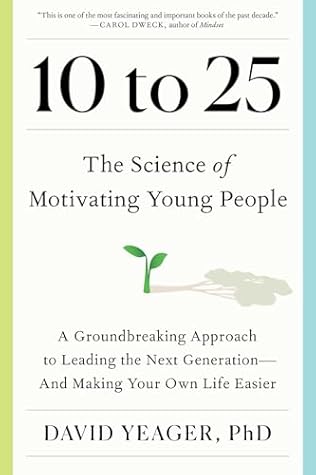We specifically wanted to understand motivation across the identity-group divide—for example, when white teachers give critical feedback to students from underrepresented minority groups, or when men critique the work of women. Our studies showed that although all students profited from wise feedback, students whose identity groups experienced marginalization or exclusion benefited even more. The wise-feedback research was why, over a quarter of a century ago, Steele wrote: [Students from underrepresented groups] should have challenging work and high standards, instead of remedial work and low
...more
Welcome back. Just a moment while we sign you in to your Goodreads account.


